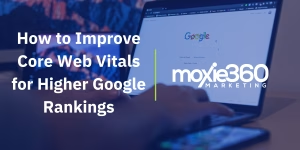Search engine optimization (SEO) is no longer just about keywords and backlinks. As artificial intelligence (AI) continues to shape the way search engines operate, businesses must evolve their SEO strategies to align with AI-driven algorithms. From Google’s BERT and RankBrain to AI-powered tools like ChatGPT and Gemini, understanding how AI influences search is essential for staying competitive online.
Here’s what you need to know about AI in SEO and how to optimize for it effectively.
What Is AI-Driven SEO?
AI-driven SEO refers to the use of artificial intelligence by search engines to understand user intent, context, and content relevance. Unlike traditional algorithms that focused primarily on keywords, AI systems analyze patterns in user behavior, natural language processing (NLP), and semantic meaning to deliver more accurate and personalized search results.
Google’s algorithm updates, like BERT and MUM, rely on machine learning to interpret complex search queries and understand content in a human-like way. These advancements mean your content must be clear, relevant, and authoritative—not just stuffed with keywords.
How AI Impacts Search Rankings
- User Intent Recognition
AI can determine what users are actually looking for, even if the query is vague. Optimizing for intent means creating content that answers questions comprehensively and clearly. - Semantic Search
Search engines now look at the meaning behind the words. Use synonyms, related terms, and structured data to help AI understand the context of your content. - Voice and Conversational Search
AI fuels voice assistants like Google Assistant and Siri. Optimize your site with natural language and conversational content to perform better in voice search. - Personalization
AI delivers results based on user history, location, and preferences. Focus on localized and personalized SEO strategies to improve visibility.
How to Optimize for AI-Driven Search
1. Focus on Quality Content
Google prioritizes content that is original, informative, and satisfies user intent. Avoid fluff and aim for depth. Long-form content that answers multiple related questions tends to perform well.
2. Use Structured Data
Schema markup helps AI understand your content and display rich snippets in results. Use tools like Schema.org to implement proper structured data for products, articles, reviews, and more.
3. Improve Site Speed and Mobile Experience
AI considers user experience signals. Use tools like PageSpeed Insights to enhance speed, and ensure your site is mobile-friendly.
4. Optimize for Featured Snippets
AI often pulls content from featured snippets to answer questions. Structure content with clear headers, bullet points, and concise answers to rank in these positions.
5. Leverage AI SEO Tools
Use platforms like Surfer SEO or Clearscope to get AI-assisted recommendations for keyword usage, readability, and topic relevance.
AI is not replacing SEO—it’s enhancing it. To thrive in the age of AI-driven search, businesses must adapt their strategies to align with how search engines think and process information. By focusing on user intent, content quality, and structured optimization, you can stay ahead of the curve and ensure your site remains visible in an ever-evolving digital environment.
For expert help optimizing your SEO for AI, reach out to the team at Moxie360 Marketing. We stay ahead of search trends so your business stays at the top.





